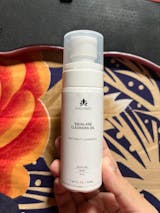Hyperpigmentation is one of the most complex skin conditions that seem inevitable for most of us. Chemical skin peels, cleansers, moisturizers, etc., claim to even out your skin tone, and a lot of them also deliver noticeable results, fading the dark spots effectively. But, do you know, sunscreen for hyperpigmentation is one of the most effective and affordable ways to prevent dark spots and treat them with time.
What is Hyperpigmentation?
Hyperpigmentation or dark spot results from excessive production of melanin in your body. According to a board-certified dermatologist in Minnesota, Jenny Liu, your body produces excess melanin when triggered by inflammation caused by eczema, acne, aggressive skin-care products, side effects of certain medications, genetics, and mainly by unprotected exposure to sunlight.
Furthermore, according to a renowned dermatologist at Marmur Medical, Dr. Rachel Maiman, hyperpigmentation can occur in almost all skin tones. However, it gets even worse with people with darker skin color. She further explains that melanocytes in dark-colored skin contain more melanin, making them more prone to produce this chemical in larger quantities.
In addition, excessive melanin production is more common in females because the female hormones progesterone and estrogen boost the overproduction of melanin when the skin is exposed to the sun, making sunscreen women even more important.
What is Sunscreen?
As the name suggests, sunscreen is a screen that blocks the harmful UV rays from entering and damaging the layers of your skin. It acts as a shade to protect your skin from harmful sun rays.
So, can sunscreen help fade your hyperpigmentation? Yes, it does. Therefore, most dermatologists recommend sunscreen to their patients with hyperpigmentation.
For your information, melanin (a chemical released by your skin) is the natural sunscreen protecting cellular DNA from harmful chemicals. Overexposure to the sun causes photodamage from both chronic and intermittent bursts of UV radiations that boost the pigment-producing cells to become active, resulting in dark spots getting darker.
SPF or sunscreen blocks UV radiation and prevents injuries to the skin cells. According to Dr. Maiman, daily use of broad-spectrum sunscreen with SPF 30+ is a great way to prevent hyperpigmentation and fade the dark spots (if any).
According to studies, sunscreen can help prevent the formation of hyperpigmentation without additional lightning agents. So, if you already have dark spots ruining your skin, wearing sunscreen will prevent the UV rays from further increasing the production of melanin, making the appearance of dark spots worse. On the other hand, if your skin is even, sunscreen will act as a shield to prevent the overproduction of melanin.
According to a renowned dermatologist, you should take one teaspoon of cream to apply it thoroughly on your face and neck. Furthermore, it is advised that you reapply sunscreen lotion every two hours to prevent over production of melanin. Experts say, not just outdoors, you should also wear sunscreen even when you are indoors.
Sunscreen for Oily Skin
People with oily skin usually feel confused about choosing the right sunscreen, as the creamy texture makes their skin feel uncomfortable. Finding the right sunscreen for oily skin can be tiring, as most of them are too creamy and leave oil slick on your face. In addition, the face might also feel heavy or sticky with the layer of creamy sunscreen. Furthermore, people with oily skin often face the issue of aggravated acne with the use of sunscreen.
But, this doesn’t imply that you should give up sunscreens altogether because sun rays give you suntan and can also cause skin cancer. So, choose a sunscreen with a mattifying effect that doesn’t clog your pores while making your face look flawless.
The market is loaded with options of sunscreens that are lightweight and non-oily. Some people also have an oily T-zone area, and they should also prefer buying oil-free sunscreen. Furthermore, some brands produce sunscreen in gel-based formulas, leaving no white cast or heaviness on your skin. These products don’t make your skin feel suffocated at all.
The internet is filled with tips and tricks about the right sunscreen and the best way to choose them. In addition, many influencers also talk about DIY sunscreens. But, experts say it is best to consult a board-certified dermatologist to choose a sunscreen according to your skin type.







 +91 9347578980
+91 9347578980